Art in a bomb shelter at the Fumetto comic festival
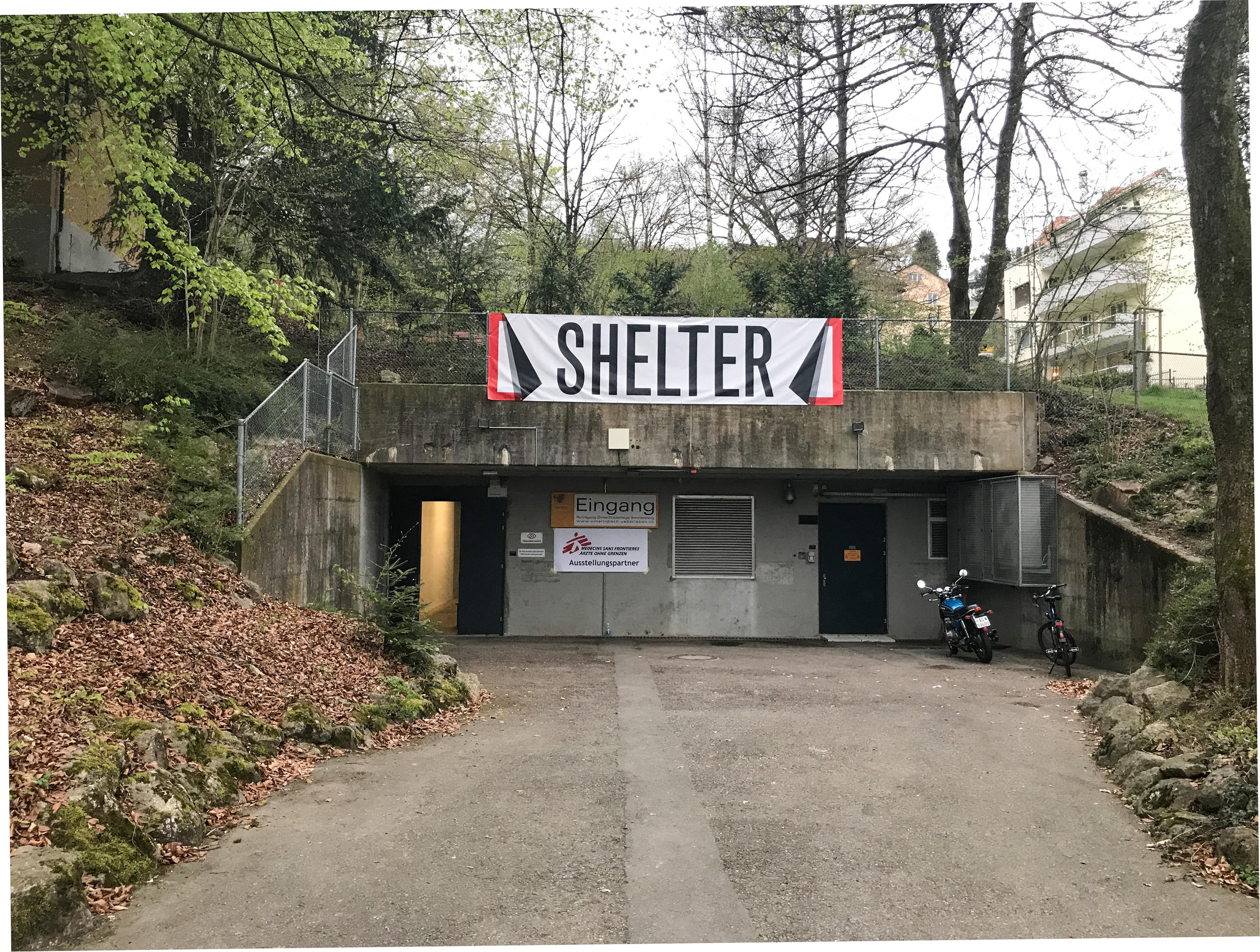
An exhibition of comic art held in a nuclear fallout shelter in Lucerne takes the idea of underground comics to another level. swissinfo.ch visits “Shelter – drawn into crisis” to learn more about how artists cope with crises.
“I don’t know what I think of Switzerland yet,” says Mohamed Wahba. His colleague, Ahmed Hossam, does. “Lucerne is beautiful, but so small compared to Cairo. I got a bus pass here, but I haven’t used it yet,” he laughs. There is indeed something introspective about Lucerne, far from all the world’s crises.
The city is a perfect dollhouse, points out someone from our group, which is descending into the Sonnenberg civil protection facility. It does not sound like a compliment. The picture-perfect city, the subject of countless smartphone photos, is quite a contrast to this exhibition.
The place could not be more suitable. A few metres within the tunnel, anxiety sets in. The huge bunker was built in the 1970s, in case of war or nuclear disaster. Then something very Swiss happened; the emergency never came.
Instead, the bunker now houses art: an exhibition of the international comic festival FumettoExternal link, entitled “Shelter – drawn into crisis” and featuring the work of comic artists who have experienced crises situations in different ways.
‘A crack goes through the world’
There are about a dozen of us down here, including some of the artists. It’s cold and a bit spooky. “This green on the walls – it should be reassuring, right?” jokes Carlos SpottornoExternal link. The Spanish photographer and reporter travelled along the external borders of the European Union with his colleague Guillermo Abril; their book is called The CrackExternal link.
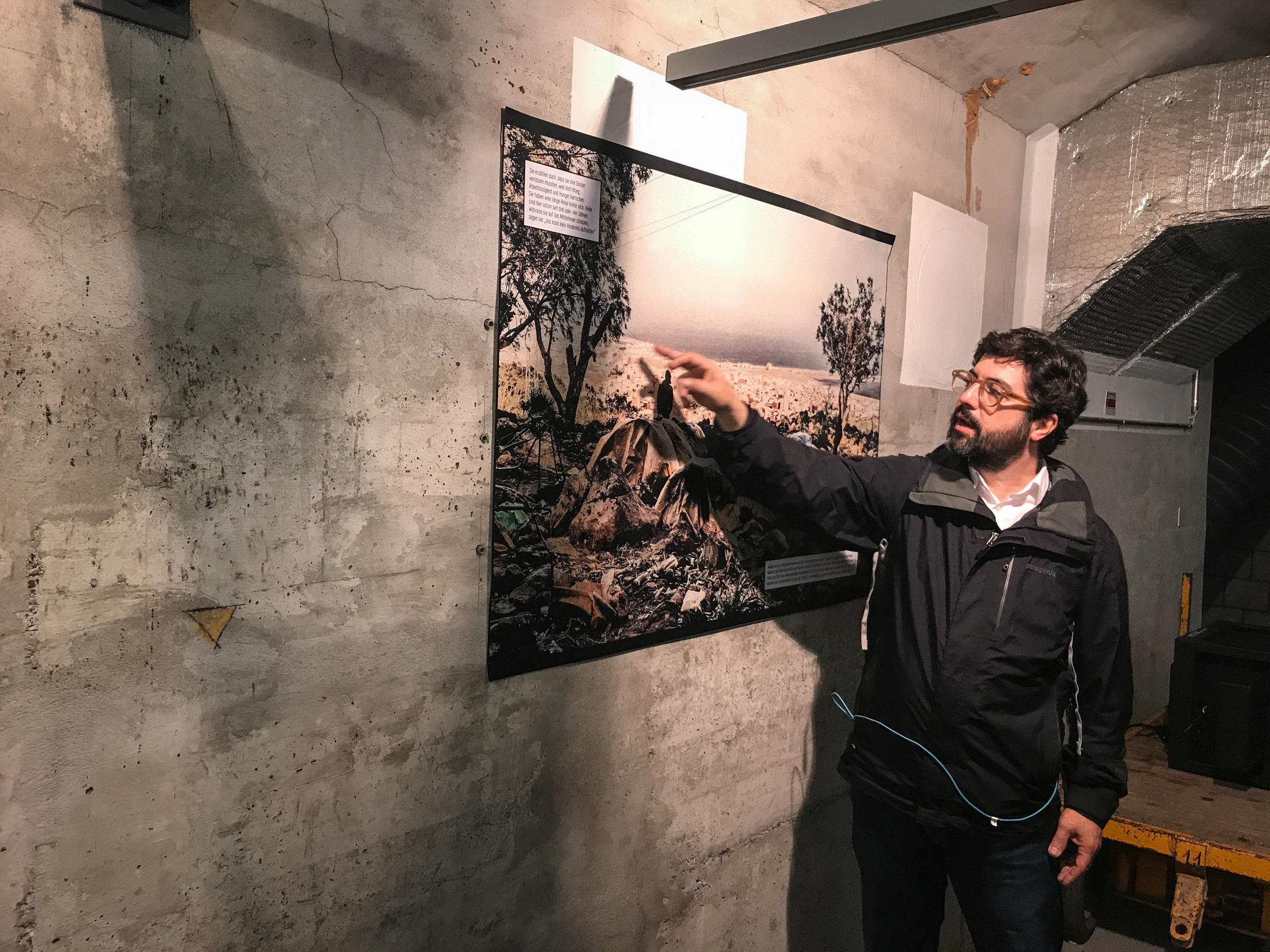
A rift goes through the world, through Europe, says Spottorno. He was on a coast guard boat in the Mediterranean during a rescue operation. “Today we are used to these pictures.” He’s convinced that when these things happen, artists mustn’t withdraw from the world. The sea, a boat, a radio message – Spottorno’s picture hangs in the half-light between metre-thick concrete walls, a silent witness to a not so distant catastrophe.
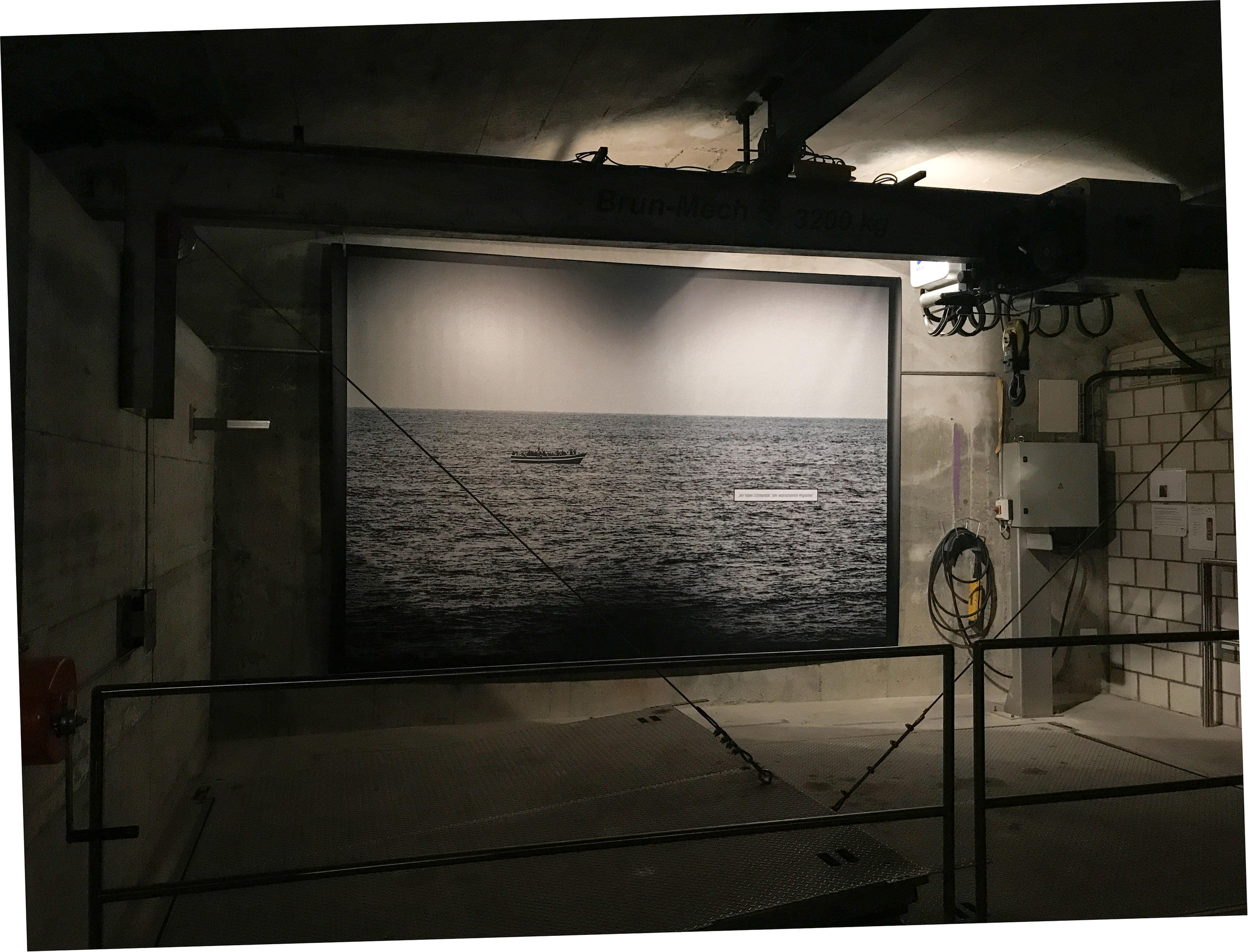
Two angles, one story
Ahmed Hossam tells the same story from another perspective. The artist from Cairo worked with Mohamed Wahba and Swiss colleagues Barbara Meuli and Julia Marti on the joint book project “Border Crossing”. Someone tries to escape, can’t get a visa, tries to sail across the sea, dies. That’s how Hossam quietly explains his work in a windowless room.
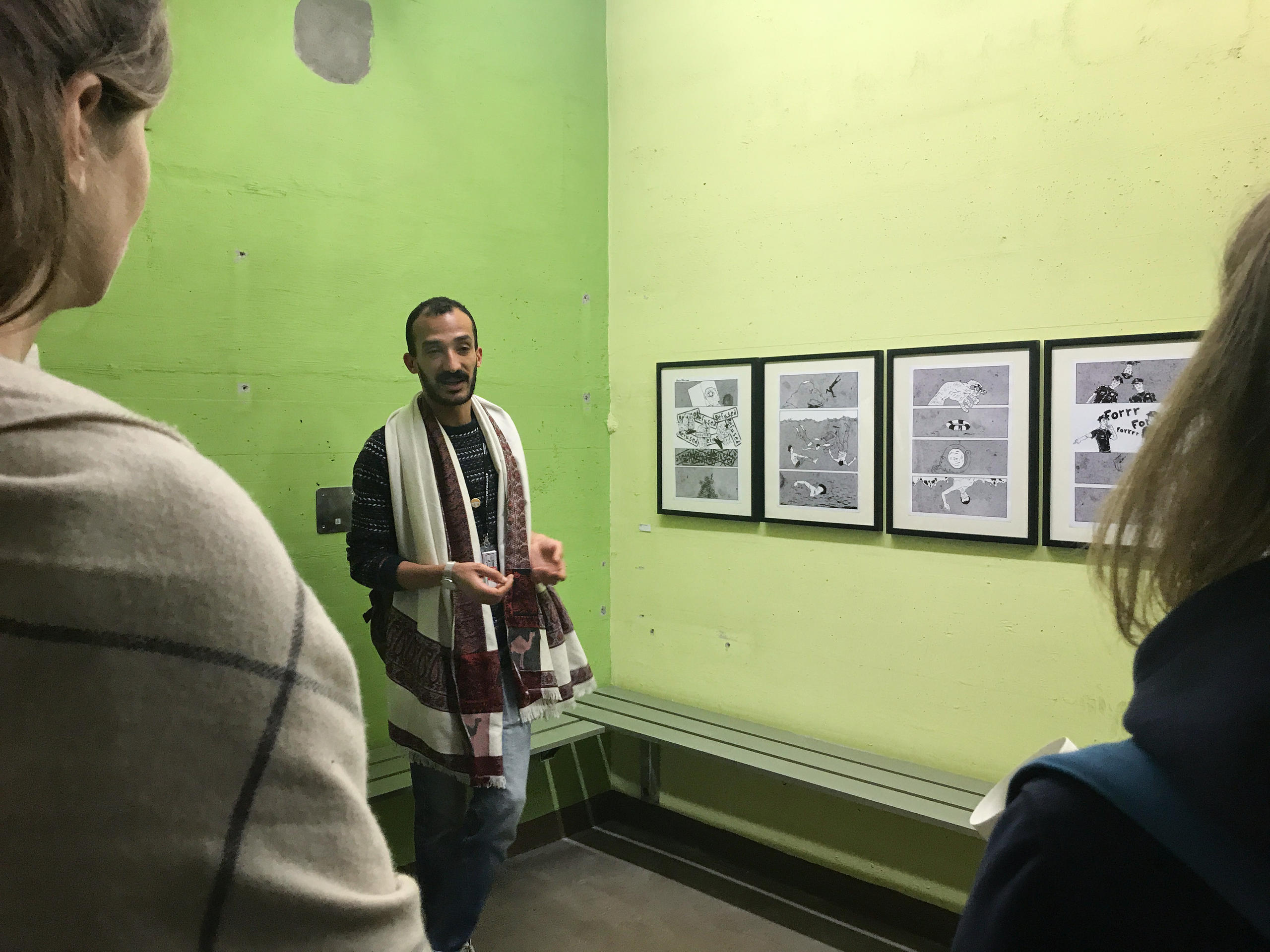
An extremely large number of works in “Shelter” – from international as well as Swiss artists – deal with the theme of escape. I wonder how this goes together. The Swiss cartoonist Patrick Chappatte puts it this way: “We come from different corners, meet at the same point, and finally, we try to tell the same story.”
Art behind bars
Hamid Sulaiman has experienced the emergency that Switzerland was always prepared for. The architect and artist from Damascus left his city in 2011, after six months of war and three jail stays: “I thought I would be back in a month or two.”
His graphic novel “Freedom Hospital” is about a fictitious hospital in Syria, where people from enemy groups meet. Unrealistic? That’s not as absurd as it sounds, says the 32-year-old: “You hear stories of soldiers playing football at the front, after trying to kill each other. I couldn’t believe it, but war is strange.”
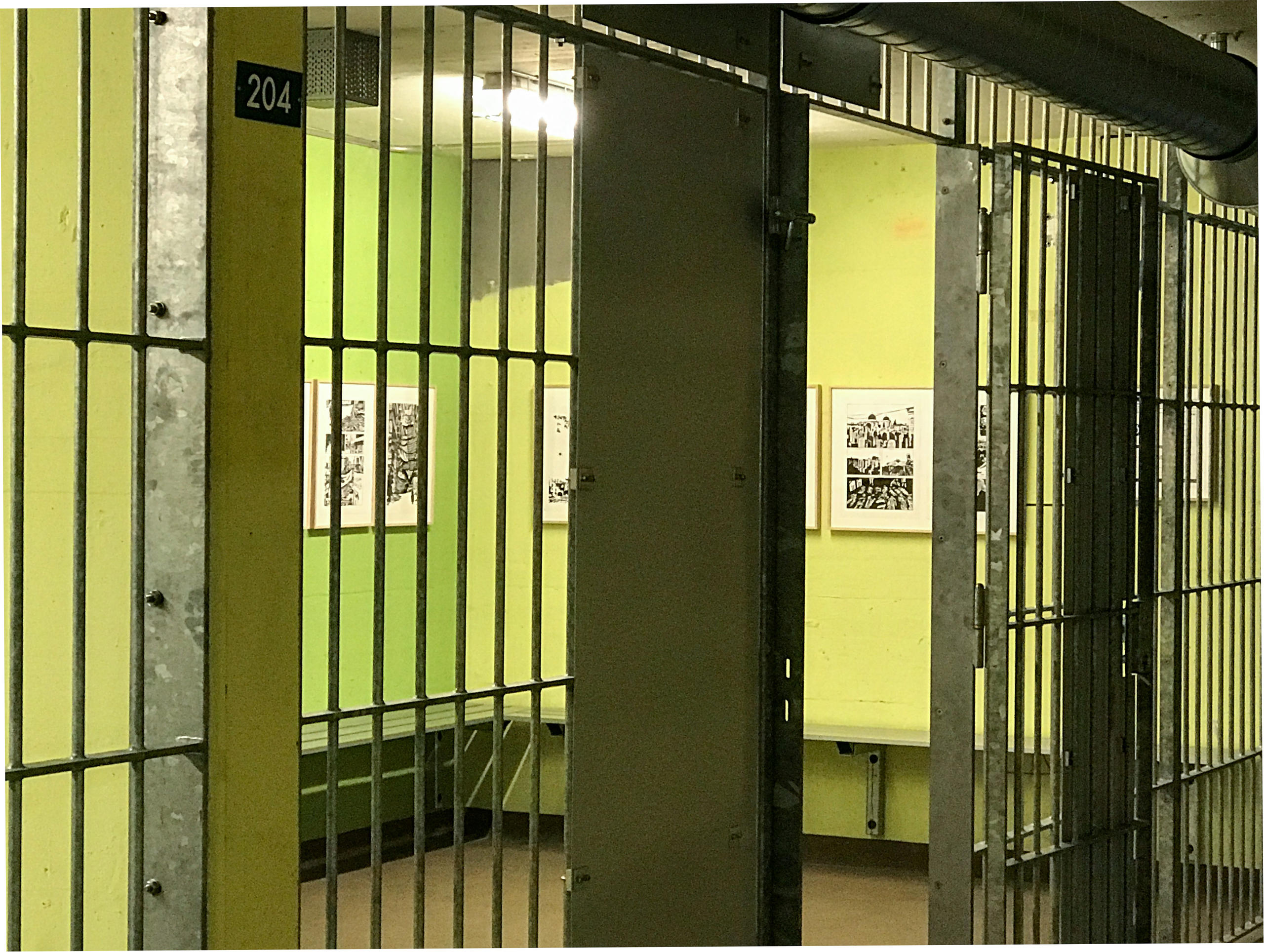
Sulaiman’s pictures are impressive and full of hope. The book is a collage of personal experiences and anecdotes from friends who have stayed behind. It’s apt that his works in the Sonnenberg bunker hide behind the bars of cells that serve as an emergency prison for the Lucerne police.
He sees his own motives critically. Sometimes it annoys Sulaiman that in Switzerland, people like himself are reduced to their own crisis region. “You are always questioned only about your country, and politics, but maybe you’d rather talk about sports or other topics that interest you, just like everyone else!”
No Swiss visas for Iraqi artists
After an hour in the bunker everyone is shivering. There’s not much oxygen, someone points out. I’m a bit dizzy. Maybe it’s the lack of daylight or the exhibition’s subject matter. The presentation style is not ideal; the lack of context for the pictures is a pity, and the artists’ names are difficult to find in the semi-darkness. The exhibition comes alive thanks to its surreal location, from the feeling that sets in, and from your own voice, which sound different than it does outside.
Anyone visiting “Shelter” quickly realises that the international worry barometer has been calibrated very differently. Ironically, four young Iraqi artists from the Mesaha collectiveExternal link experienced visa complications and could not travel to Switzerland in time for the festival. No “Shelter”, no temporary refuge in this country. Artistic exchange is also a privilege.
We step back into the fresh air, a bit relieved. Leaves rustle in the wind, it smells of rain, cigarettes are lit. From the nearby playground, a child’s laugh. The crises remain in the bunker. We stroll back to the city together. A peaceful walk – as if it’s the most normal thing in the world.
Shelter @ Comicfestival FumettoExternal link
Sonnenberg civil protection bunker
Partner: Médecins sans Frontières.External link
Entry: 10:00 to 20:00, on the hour on weekdays, every half hour on weekends.
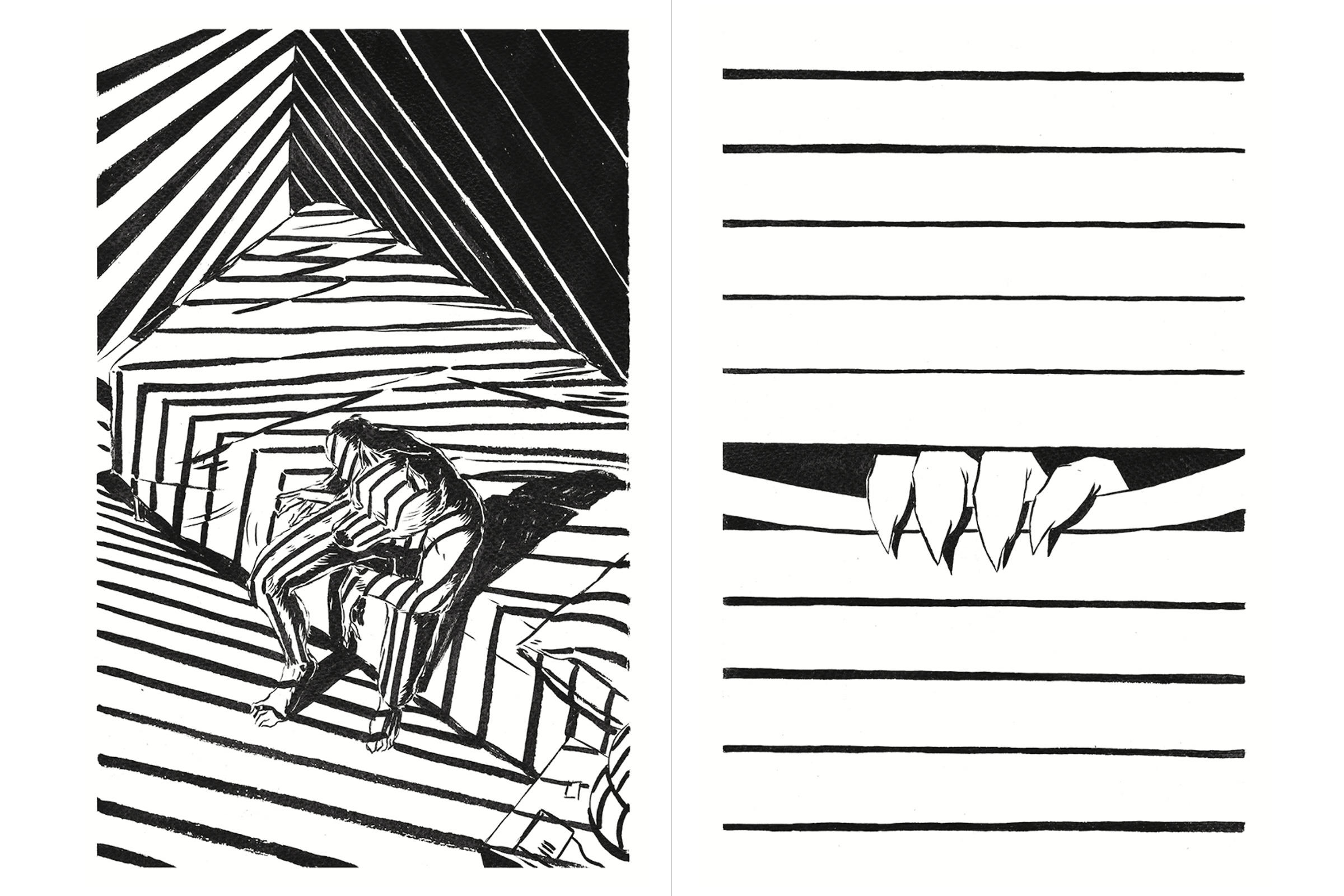
More
Shelter – drawn into crisis
Translated from German by Susan Misicka

In compliance with the JTI standards
More: SWI swissinfo.ch certified by the Journalism Trust Initiative

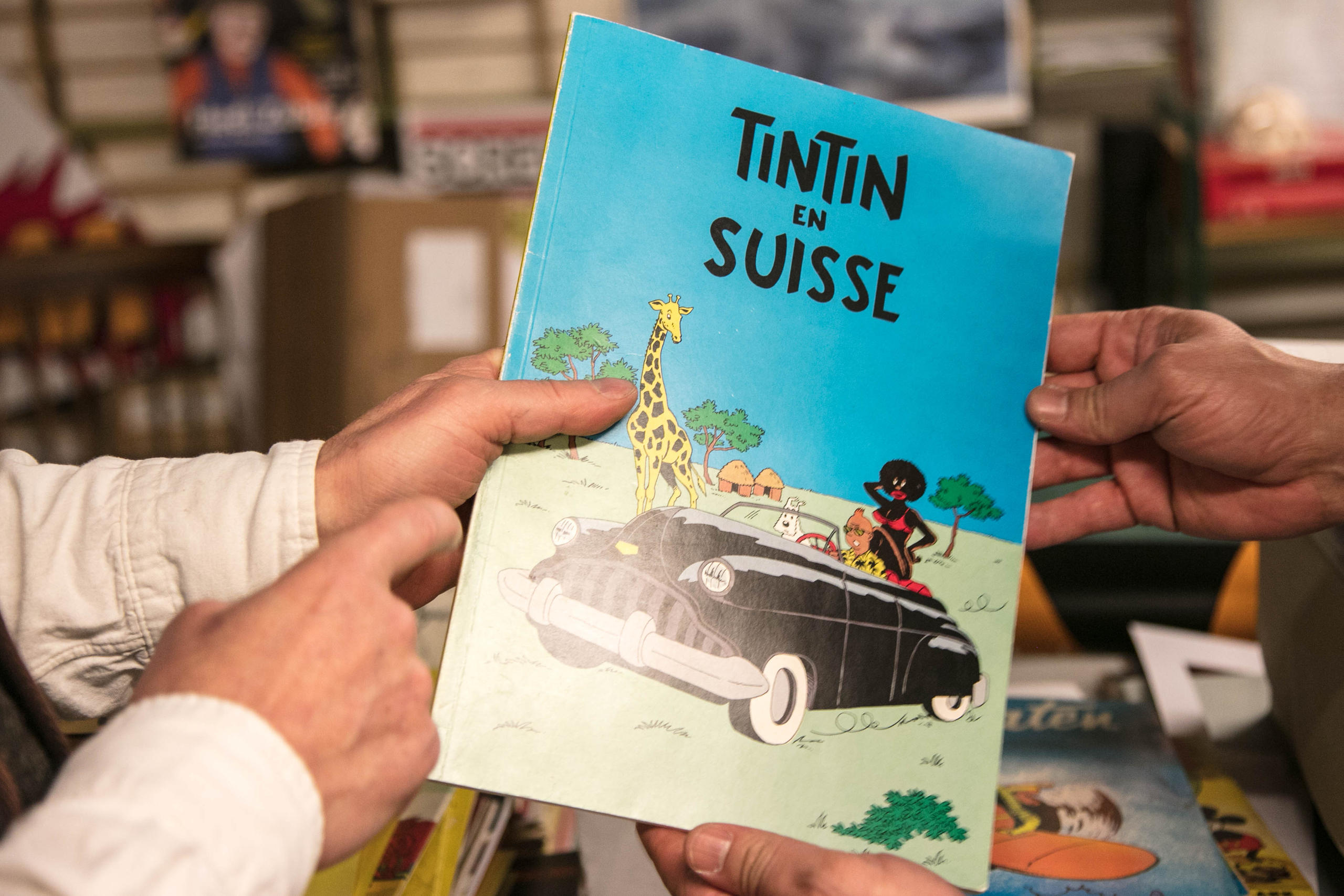
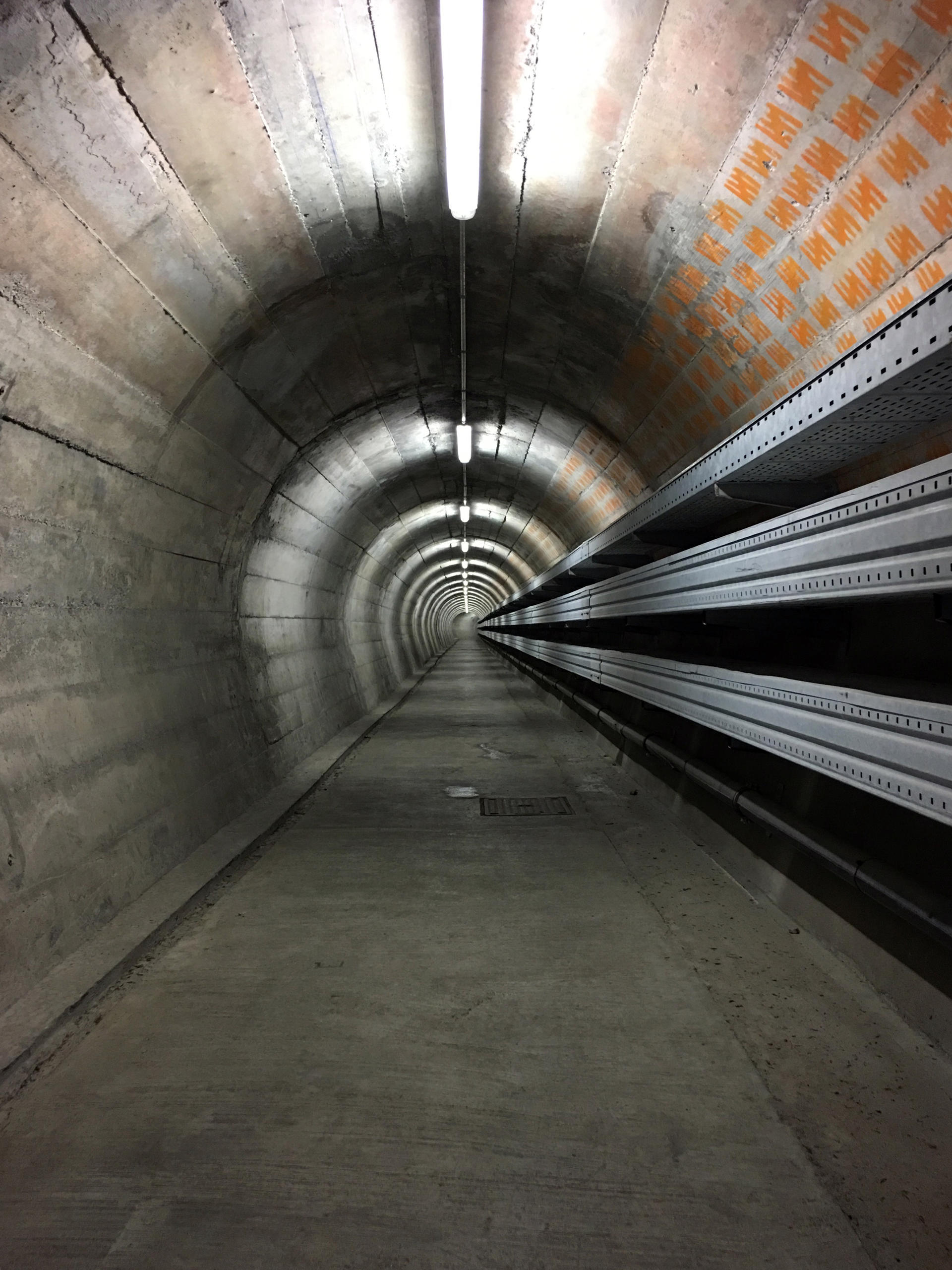
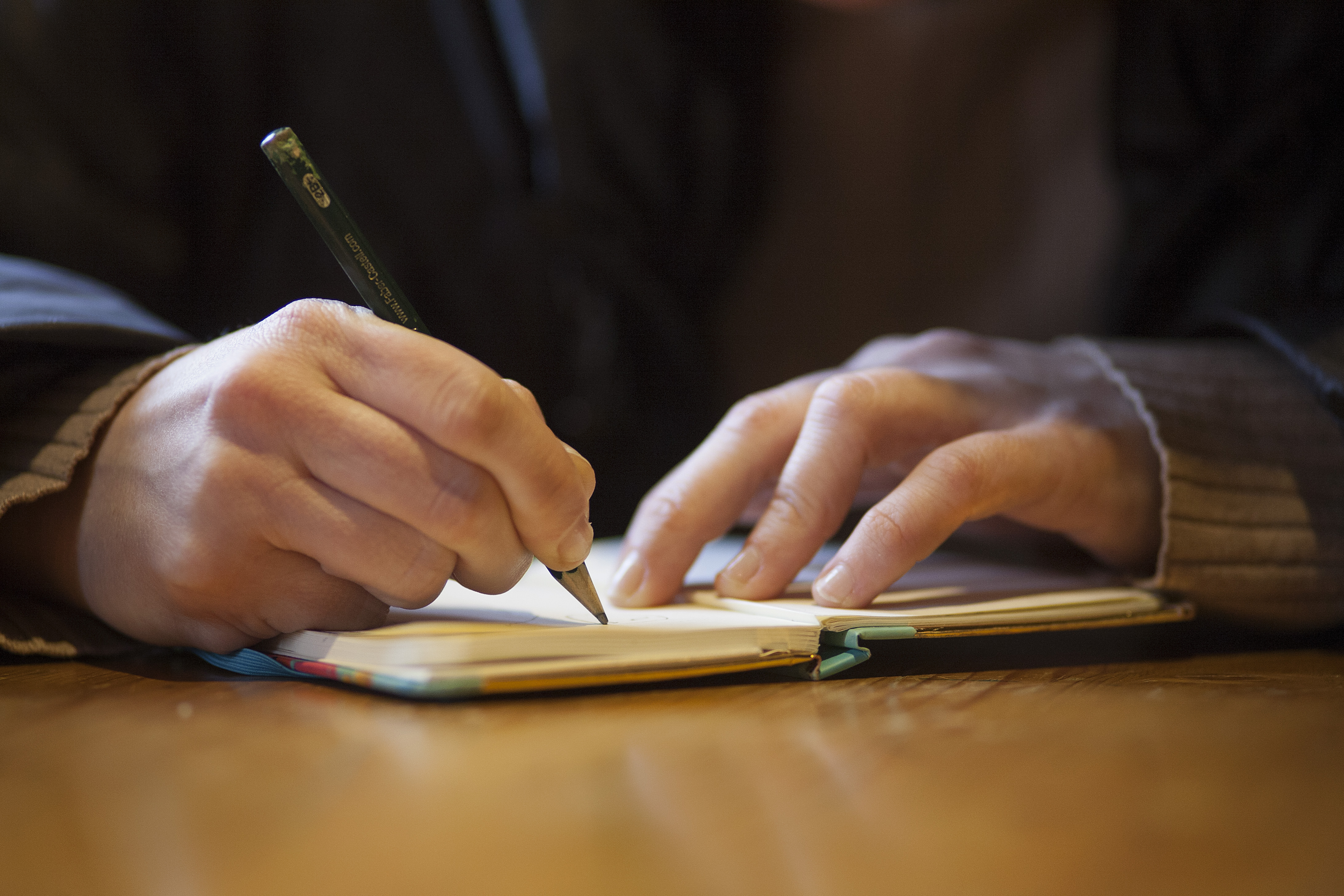
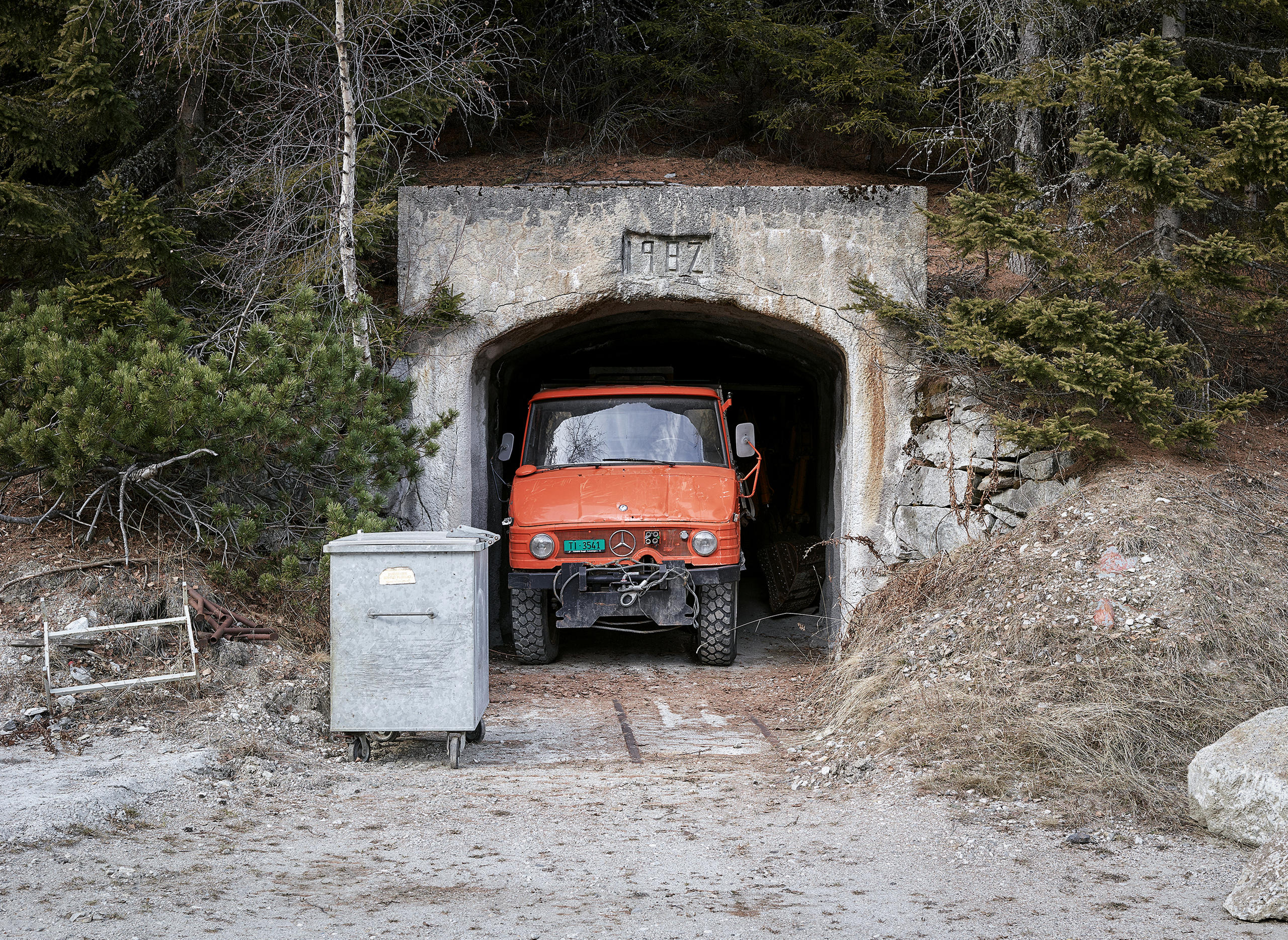
You can find an overview of ongoing debates with our journalists here. Please join us!
If you want to start a conversation about a topic raised in this article or want to report factual errors, email us at english@swissinfo.ch.